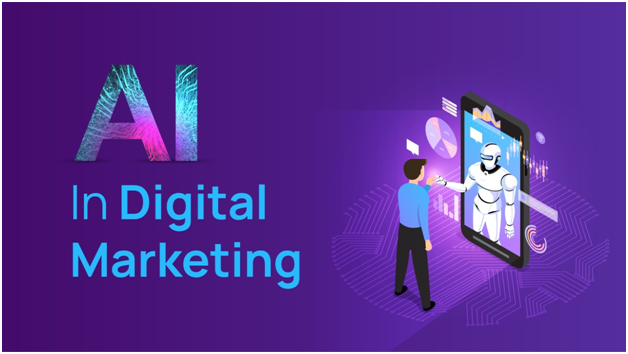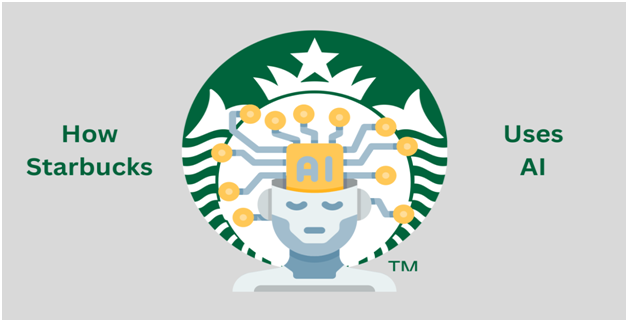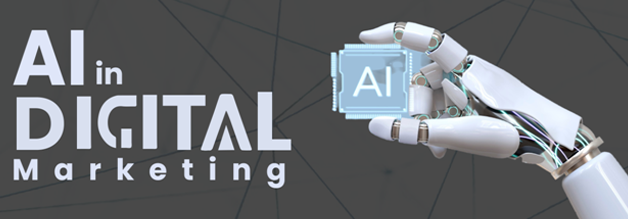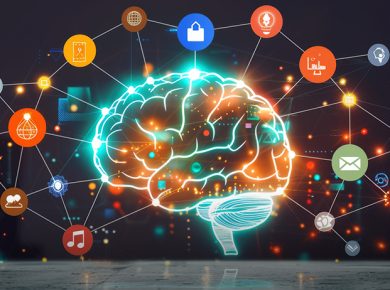Table of Contents
In today’s fast-paced digital landscape, Artificial Intelligence (AI) is no longer a futuristic concept; it’s a reality that’s reshaping industries, and marketing is no exception. From enhancing customer experiences to streamlining operations, AI is becoming a cornerstone in the marketing strategies of forward-thinking businesses. In this article, we’ll explore how marketing can leverage AI to drive growth and gain a competitive edge.

Enhancing Customer Experience
One of the most significant advantages of AI in marketing is its ability to personalize customer interactions. AI algorithms analyze vast amounts of data to understand individual preferences, behaviors, and purchasing patterns. This enables marketers to create highly personalized content and recommendations, leading to more meaningful and engaging customer experiences.
For instance, AI-powered chatbots provide instant customer support, answering queries and resolving issues in real time. According to a report by Gartner, by 2022, 70% of customer interactions will involve emerging technologies such as machine learning applications, chatbots, and mobile messaging, up from 15% in 2018. This shift not only improves customer satisfaction but also frees up human resources to focus on more complex tasks.
Optimizing Ad Campaigns
AI-driven tools are revolutionizing the way marketers approach advertising. Predictive analytics and machine learning algorithms analyze historical data to predict future trends and behaviors. This allows marketers to optimize their ad campaigns by targeting the right audience with the right message at the right time.
For example, AI can identify which segments of the audience are most likely to convert and adjust bidding strategies accordingly. This results in higher conversion rates and a better return on investment (ROI). A study by Statista revealed that AI in marketing will grow to a market size of $40.09 billion by 2025, highlighting the increasing reliance on AI-driven advertising solutions.
Content Creation and Curation
Creating high-quality content consistently can be challenging. AI simplifies this process by generating content ideas, optimizing headlines, and even writing articles. Natural Language Processing (NLP) algorithms can analyze trending topics, social media conversations, and competitor content to suggest relevant and engaging content ideas.
Moreover, AI tools like Grammarly and Copy.ai assist in polishing and refining content, ensuring it resonates with the target audience. According to a survey by MarketsandMarkets, the AI in content creation market is expected to grow from $460 million in 2020 to $1.2 billion by 2025.
Data-Driven Decision Making
AI enables marketers to make data-driven decisions with greater accuracy and speed. Machine learning models can process and analyze large datasets to uncover patterns and insights that would be impossible for humans to detect. This empowers marketers to make informed decisions about everything from product development to campaign strategies.
For example, AI can predict customer churn and suggest proactive measures to retain valuable customers. It can also identify emerging market trends and recommend adjustments to marketing strategies in real-time. According to McKinsey, companies that leverage AI in their marketing strategies see a 20-30% increase in conversion rates and a 25% reduction in acquisition costs.
Case Study: Starbucks and Predictive Analytics
A prime example of AI in marketing is Starbucks’ use of predictive analytics to enhance customer experience and optimize operations. Starbucks uses its AI-driven platform, Deep Brew, to analyze customer data from its loyalty program, mobile app, and in-store transactions.
Deep Brew personalizes customer interactions by offering tailored recommendations and promotions based on individual preferences and behaviors. For instance, if a customer frequently orders a latte in the morning, Deep Brew might suggest a new breakfast item that pairs well with their usual order. This personalized approach has significantly increased customer engagement and loyalty.
Additionally, Deep Brew optimizes inventory management by predicting demand for specific items, reducing waste, and ensuring popular products are always in stock. This data-driven approach has led to improved operational efficiency and increased sales.

Advice for Marketers
To effectively leverage AI in your marketing strategy, consider the following tips:
- Start with Clear Objectives: Define what you want to achieve with AI, whether it’s improving customer experience, optimizing ad campaigns, or making data-driven decisions.
- Invest in Quality Data: AI thrives on data. Ensure you have access to accurate and comprehensive data to feed into your AI models.
- Choose the Right Tools: There are numerous AI tools available for various marketing needs. Select tools that align with your objectives and can seamlessly integrate with your existing systems.
- Test and Iterate: Implement AI solutions on a small scale first, measure their impact, and refine your approach based on the results. Continuous testing and iteration will help you maximize the benefits of AI.
- Stay Informed: AI is a rapidly evolving field. Keep up with the latest trends and advancements to stay ahead of the competition and make informed decisions.

Invitation to Contribute
At GrowthBuzz, we’re passionate about exploring the latest trends and innovations in marketing. We invite you to join the conversation by contributing your insights and experiences. Whether you’re a seasoned marketer or a budding enthusiast, your voice matters.
Read more insightful articles and stay updated with us. Tune in to our podcasts for expert discussions and practical tips on business, marketing and beyond. Join our community, and let’s shape the future of marketing together.









